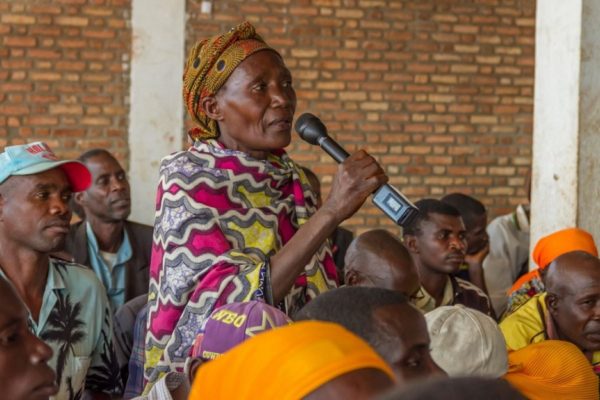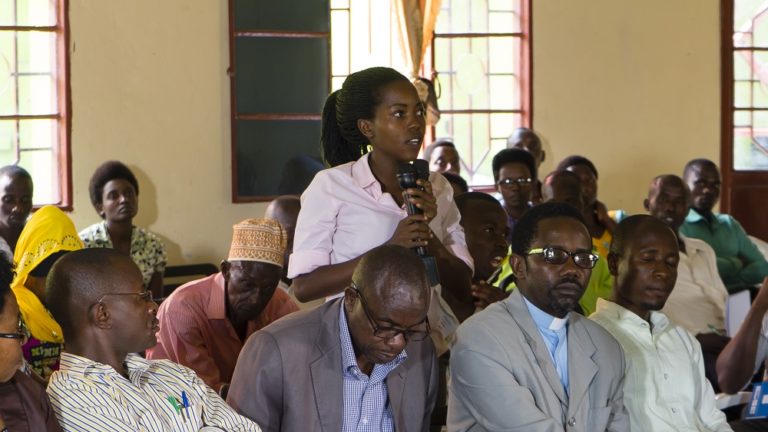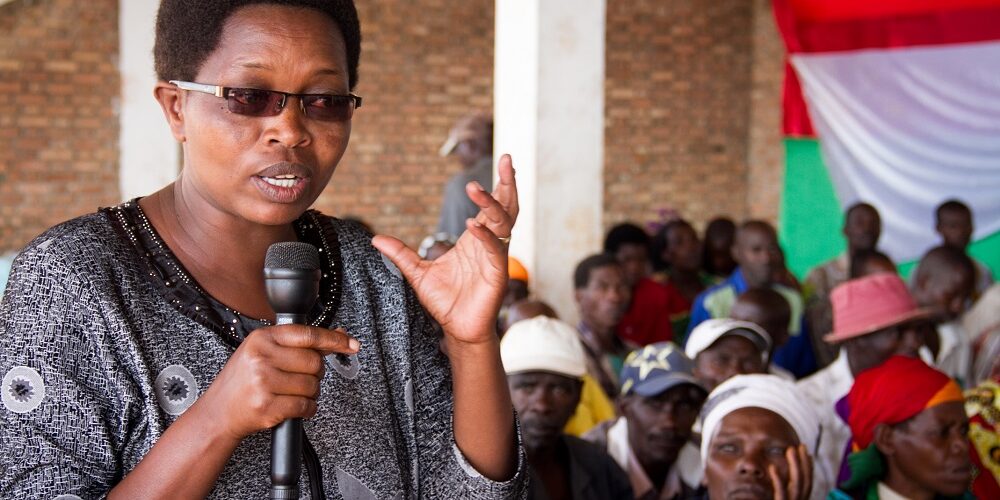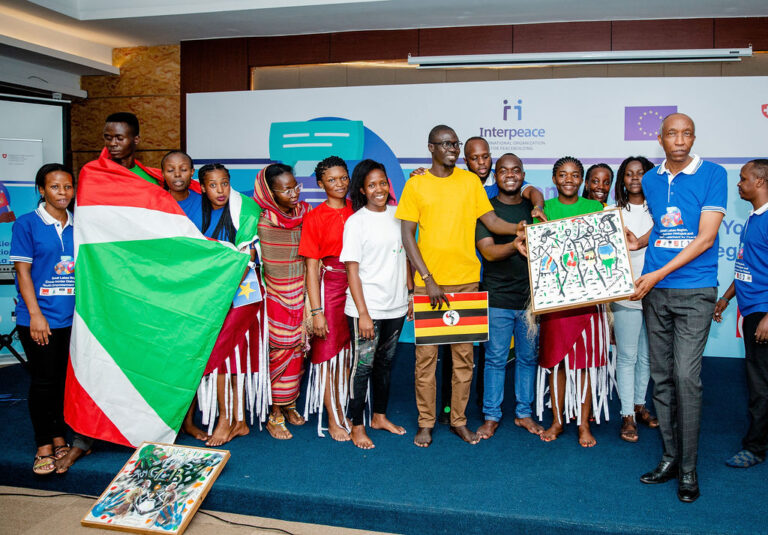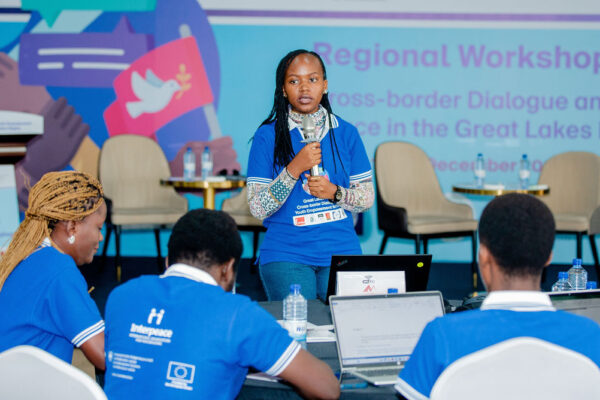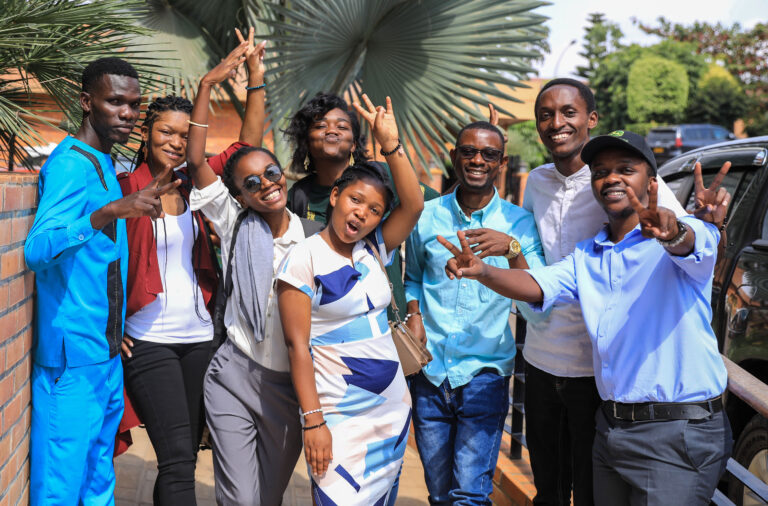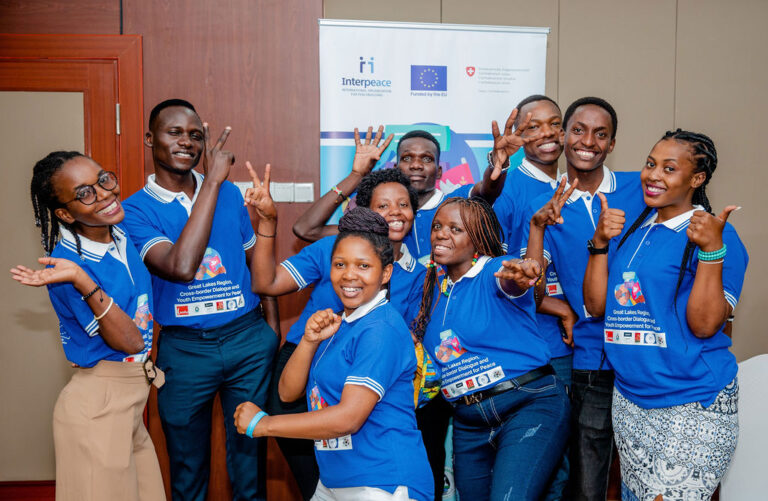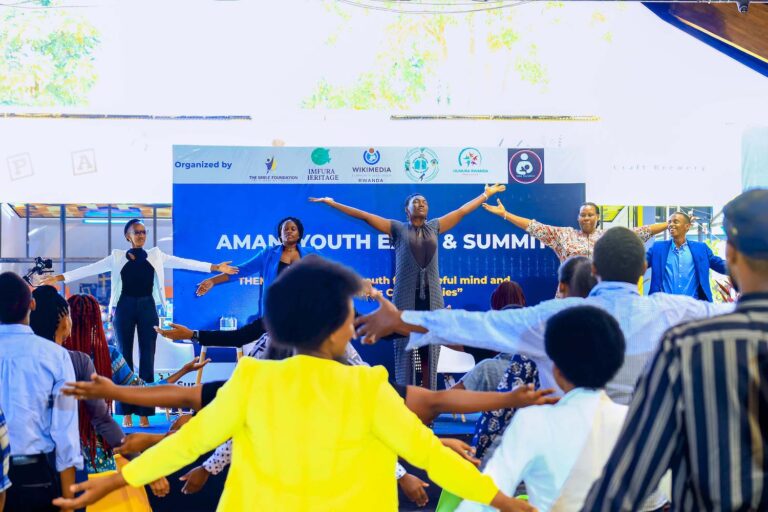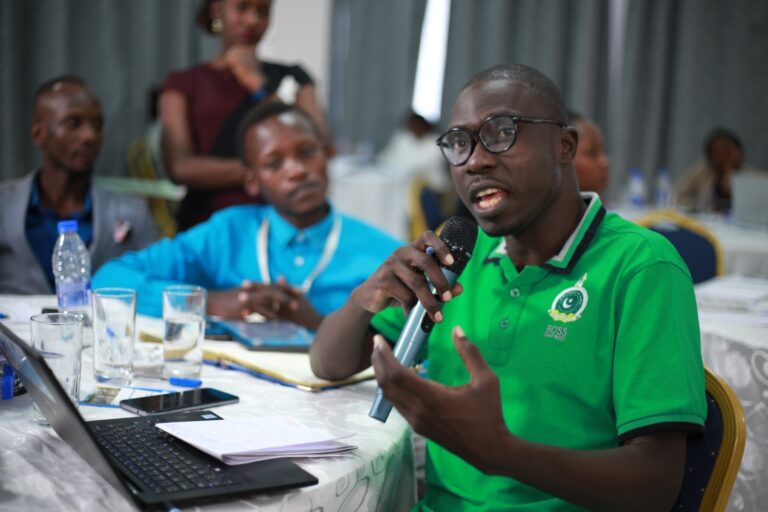The African Great Lakes region has experienced recurrent conflicts that have claimed millions of lives, in Burundi, the Democratic Republic of Congo (DRC), and Rwanda, since the 1960s. Many of the conflicts are deeply interconnected due to shared historical and social realities to a significant degree. The cycles of violence have affected stability, development, and economic prospects creating systemic vulnerabilities.
In 2013, Interpeace and its local partners consulted the Great Lakes populations on the relevance of a regional programme and the strategic focus it should have. Identity manipulation and stereotypes, competition over access to power and resources, movements of armed groups, as well as the legacies of the 1994 genocide against Tutsi in Rwanda are admittedly the major conflict drivers. The consultations revealed a strong demand for cross-border dialogue among communities along the shared borders, as well as between those communities and policy-makers.
After a prioritization exercise involving national, subnational political leaders and civil society representatives, the regional forum recommended to undertake more extensive research on two main issues: the role of prejudices, stereotypes, and identity manipulation in the GLR and the nexus between “Land, identity, power and population movements”. The research on identity, power and population movements showed a direct link between the competition over land ownership and use, identities and population movements, and how they contribute to the escalation of conflicts in the three countries of the Great Lakes Region.
The recent study on resilience for reconciliation in the Great Lakes Region aimed to change the mainstream narratives and research agenda that mostly tend to dwell more on divisions, precariousness, and insecurity than on the potential and capacity of the populations of these three countries to overcome challenges and adapt. It analysed resilience capacities that could inspire or strengthen ongoing or foreseeable reconciliation efforts for sustainable peace in the region.
Findings from these studies continue to inform the strategic orientation of Interpeace and its partners’ programmatic interventions and initiatives in the region.
